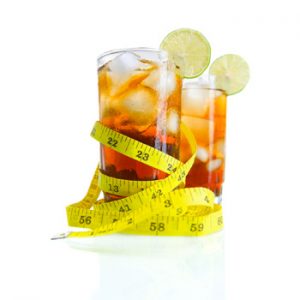
More evidence that low-calorie sweeteners are bad for your health
Studies show that artificial sweeteners can raise the risk of hypertension, metabolic syndrome, type 2 diabetes and heart disease, including stroke.

Natural Health News — Want fries with that diet soda? You aren’t alone, and you may not be ‘saving’ as many calories as you think by consuming diet drinks.
A new study that examined the dietary habits of more than 22,000 US adults found that diet-beverage consumers may compensate for the absence of calories in their drinks by noshing on extra food that is loaded with sugar, sodium, fat and cholesterol.
The study which will appear in the Journal of the Academy of Nutrition and Dieteticsfound that more than 90% of those in the study consumed so-called ‘ discretionary foods’ – such as cookies, ice cream, chocolate, fries and pastries – daily, averaging about 482 calories from these products each day.
» New research suggests that those who frequently drink diet drinks may compensate by indulging in higher calories foods throughout the day.
» Diet soda drinkers consumed around 482 each day from foods like cookies, ice cream, chocolate, fries and pastries.
» The researchers suggest that when considering people’s eating habits in relation to diet advice, healthcare practitioners should give due attention to their beverage consumption.
In addition about 97% percent of the study population consumed at least one of the five types of beverages daily, with about 41% drinking beverages from at least two of the categories. More than 25% consumed three or more types of beverages daily.
Compensation and justification
While coffee and diet-beverage drinkers consumed fewer total calories each day than people who preferred alcohol or sugary drinks, they obtained a greater percentage of their daily calorie intake from discretionary foods – a finding that suggests a possible compensation effect, An said.”It may be that people who consume diet beverages feel justified in eating more, so they reach for a muffin or a bag of chips,” said lead researcher University of Illinois professor Ruopeng An. “Or perhaps, in order to feel satisfied, they feel compelled to eat more of these high-calorie foods.”
A third possible explanation might be that people opt to drink diet beverages because they feel guilty about indulging in unhealthy food, An said.
“It may be one – or a mix of – these mechanisms,” An said. “We don’t know which way the compensation effect goes.”
Smart people making dumb choices
Associations between beverage consumption and daily calorie intake differed substantially across different cultural and ethnic groups, An found. For instance,
In exploring associations between beverage type and dietary quality, An found that people who consumed sugar-sweetened beverages or coffee had the worst nutrition profiles.
Look at diet as a whole
Switching to diet drinks may not help people control their weight if they don’t pay attention to the quantity and quality of the foods they consume, An said.
“If people simply substitute diet beverages for sugar-sweetened beverages, it may not have the intended effect because they may just eat those calories rather than drink them,” An said. “We’d recommend that people carefully document their caloric intake from both beverages and discretionary foods because both of these add calories – and possibly weight – to the body.”
An also recommended that public health interventions take a holistic approach, encouraging people to assess their beverage consumption in the context of their overall dietary behavior.

Please subscribe me to your newsletter mailing list. I have read the
privacy statement